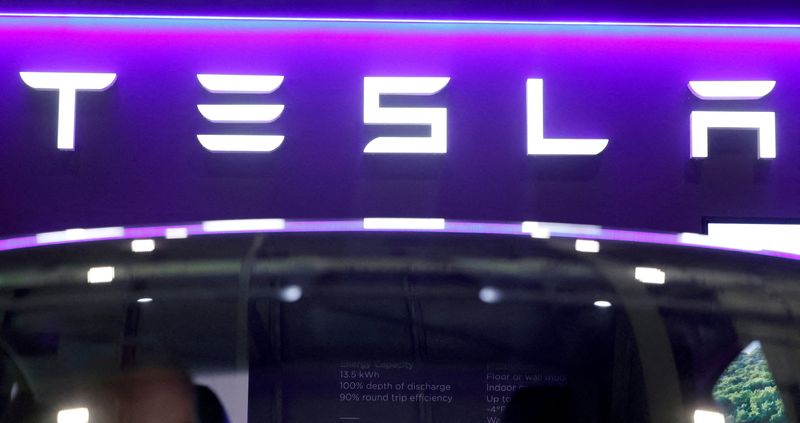(Reuters) -Tesla has settled a lawsuit over a 2018 car crash that killed an Apple (NASDAQ:) engineer after his Model X, operating on Autopilot, swerved off a highway near San Francisco, court documents showed on Monday.
The settlement was made on the eve of the trial over the high-profile accident involving Tesla (NASDAQ:)’s driver assistant technology. Tesla faces a series of lawsuits over crashes related to the alleged use of Autopilot, putting the automaker at risk of large monetary judgments and reputational damage.
The settlement, whose terms were not disclosed, came as Chief Executive Elon Musk is making major promotions of self-driving technology, which he has touted as key to the financial future of the world’s most valuable automaker.
The 2018 accident killed 38-year-old Walter Huang. His family had alleged that Autopilot steered his 2017 Model X into a highway barrier. Lawyers for Huang’s family had also raised questions about whether Tesla understood that drivers likely would not or could not use the system as directed, and over what steps the automaker took to protect them.
Tesla had contended that Huang misused the Autopilot system because he was playing a video game just before the accident.
Huang’s lawyer and Tesla were not immediately available for comment.
The crash that killed Huang is among hundreds of U.S. accidents in which Autopilot was a suspected factor in reports to auto safety regulators.
The U.S. National Highway Traffic Safety Administration has examined at least 956 crashes in which Autopilot was initially reported to have been in use. The agency separately launched more than 40 investigations into accidents involving Tesla automated-driving systems that resulted in 23 deaths.
“It is striking to me that Tesla decided to go this far publicly and then settle,” said Bryant Walker Smith, a law professor at the University of South Carolina with expertise in autonomous vehicle law. “What this does do, though, is it says to other attorneys, we might settle. We might not always fight it. That is the signal.”
The case follows two previous California trials over Autopilot that Tesla won by arguing the drivers involved had not heeded its instructions to maintain attention while using the system.
Despite marketing features called Autopilot and Full Self-Driving, Tesla has yet to prove it can produce an autonomous car despite years of predictions by co-founder and CEO Elon Musk that one was just around the corner, an expectation that partly underpinned Tesla’s soaring valuation.
Musk said on Friday that Tesla plans to unveil a completely self-driving robotaxi on Aug. 8, after Reuters reported that Tesla scrapped an inexpensive car plan in favor of robotaxis.
He also said last month that Tesla will offer U.S. customers a month’s free trial of its driver-assist technology, Full Self-Driving.
Tesla says Autopilot can match speed to surrounding traffic and navigate within a highway lane. The step-up “enhanced” Autopilot, which costs $6,000, adds automated lane-changes, highway ramp navigation and self-parking features. The $12,000 Full Self-Driving option adds automated features for city streets, such as stop-light recognition.
Tesla materials explaining the systems warn that it does not make the car autonomous and requires a “fully attentive driver” who can “take over at any moment.”
